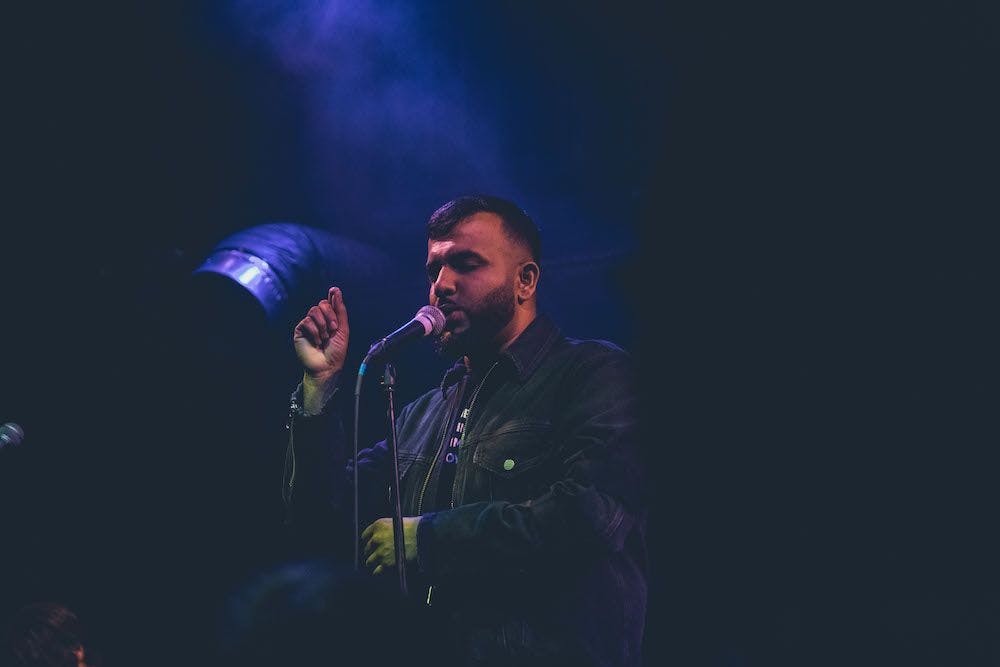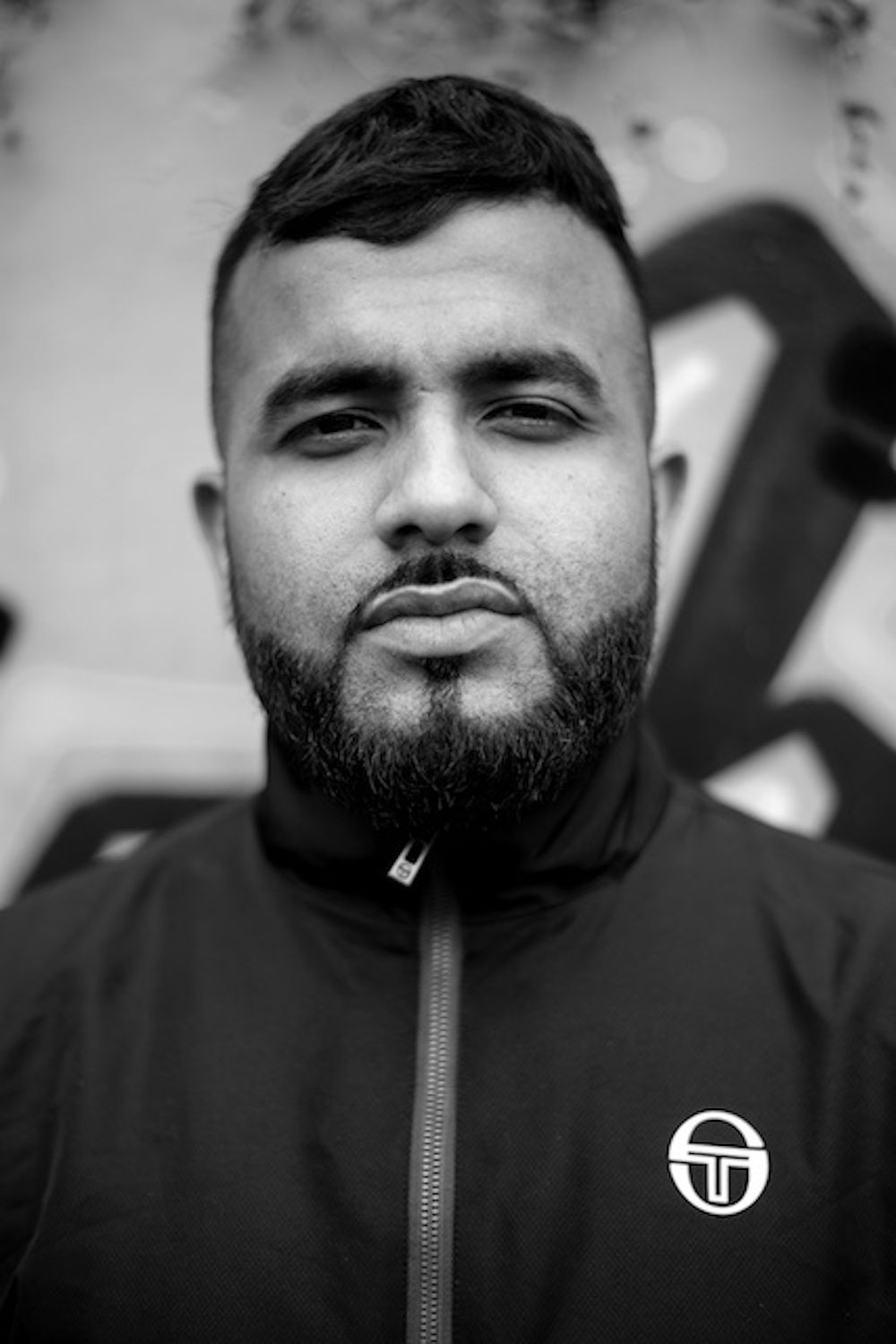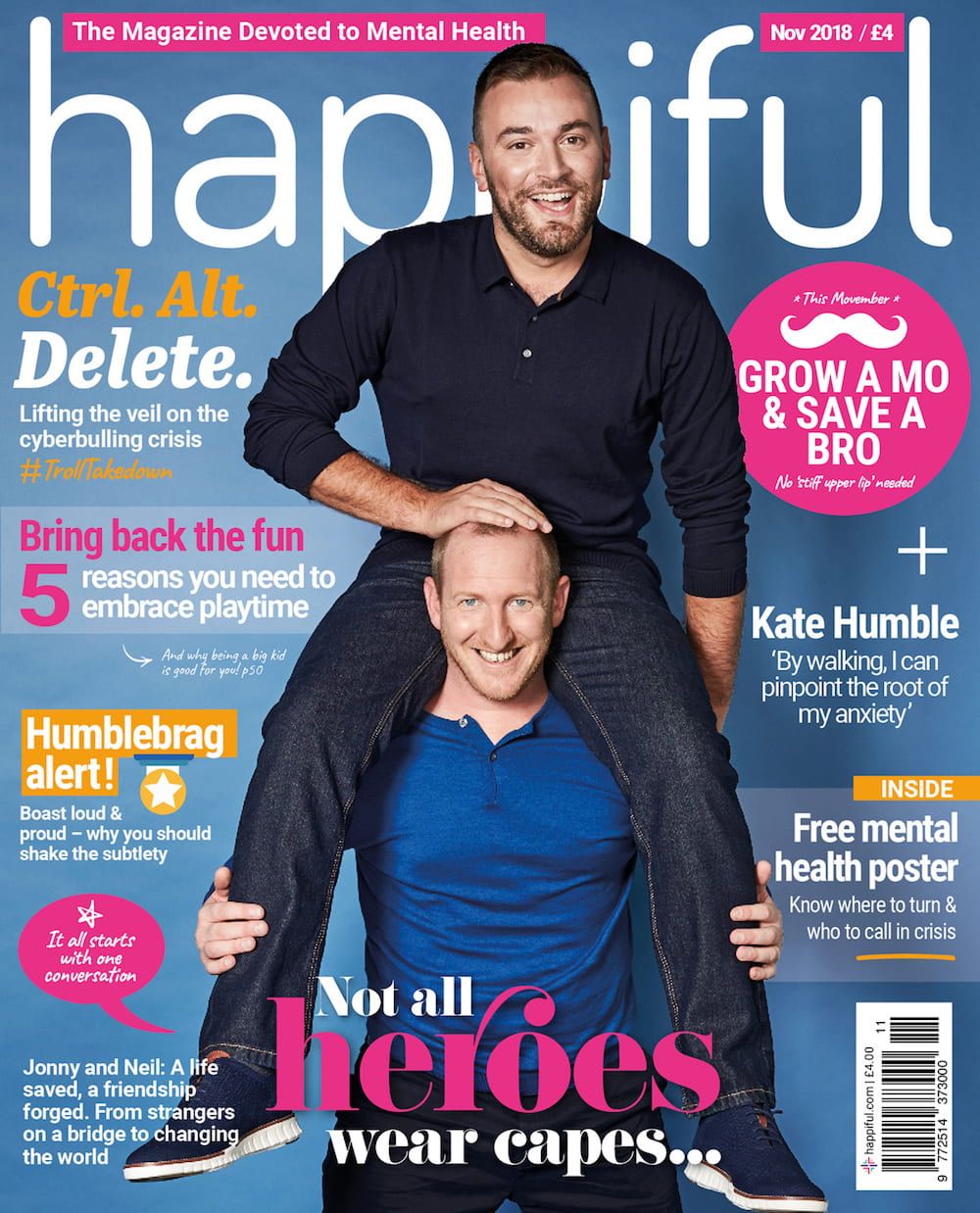
‘If you’ve suffered from depression or anxiety, hug me.’ Blindfolded, equipped with just a piece of cardboard, a pen, and those very simple words, in 2015 Londoner Hussain Manawer, 27, took mental health to Oxford Street, in the heart of one of the world’s busiest cities. He has since continued to connect with people, either on the streets or by penning an inspiring poem, marking him out as a true mental health hero
Hi Hussain! What prompted you to carry out the Oxford Street experiment?
I am convinced we are all going through things, and I feel like we see so much content these days we’ve become so immune to it. It’s not just about talking, it’s showing people, too. That video connects, it’s relatable. You think: “That could have been my mum, my aunt or my cousin, that could be me.”
Did you expect such an outpouring of emotion and engagement?
To be honest, I didn’t. Londoners are known to be fast people, who are stuck in their own ways. I did that three years ago, but people still talk about it. I retweeted it the other day, and it got 185,000 views in a week. I am just happy people connect with it and normalises a conversation. It makes people feel like they are not alone; that’s a big factor for me.
What was it like for you growing up in east London?
Recently, somebody got shot outside my house, on my doorstep. My dad and little sister went outside, saw all the police, and just went back inside and carried on watching their film. It showed how we are so exposed to gun crime, knife crime, acid attacks, they have become so normal. The juxtaposition of where we live and the amount of crime and juvenile behaviour that goes on, it kills the ambition here. Besides that, growing up was fine – I had a good upbringing.

Photography | Kevin-Scullion
When did you start talking openly about mental health?
We live opposite a mental health hospital, so we see patients all the time. I would ask my mum: “Why are they getting no visitors” or “Where are their families?” So we would start the conversation. She would say to me: “Certain people there have an illness, and they might not have families, or they might not be aware of where they are.” I was always inquisitive, and she was my go-to contact.
Did you discuss your own mental health with her?
When I was at university, I remember telling her I didn’t like being there. I didn’t like paying for it; all my friends were out there living the best time of their lives. I was really depressed, I was in a hole. Just being able to have that conversation was so powerful, because you’re not having to lie; lying is taxing and nobody has time for it. I was able to talk to her about everything.
Your mum made a big impression on you. Could you describe her influence?
Being my mum’s son is my greatest achievement in the world, she was a great lady. She ran a business – not a multi-million pound one. She had a little restaurant, she ran her home, she ran her life, she ran our lives. She was a great woman, everything she left in me taught me a lot. Growing up, my mum and I had a very good relationship. We were able to talk about so many things, even mental health. Being able to chat about that to a Pakistani mum is a big deal, because my culture is known to be quite closed to subjects like that.
Why do you think that is?
A lot of ethnic minorities have this lack of knowledge and understanding of subjects like chemical imbalances and post-traumatic stress, schizophrenia, psychosis. It’s not knowledge that’s taught to everyone. Only at A-level and university do you have a choice of studying psychology, but not many people coming to England would study those courses. They wouldn’t know about these subjects, so they don’t know what they’re talking about. That’s where this new age pressure of social media and social envy is creating a big divide in our homes. Our parents are unable to understand those situations and the problems they are causing.
Why do you think men in particular struggle to talk about mental health?
Truth be told, I have no idea. I went on a camping trip recently, and I thought we would sit around a fire and talk about how we were feeling. But I was the anomaly in thinking that. I do this line of work, and it’s all I’m around, so it’s quite normal for me – I have become quite disconnected from understanding why men don’t speak about the way they feel.
Hussain’s poetry show ‘The Root of The Pain’ is headlining Scala, in King’s Cross on Thursday, 29 November. For more information, visit stereoboard.com/hussain-manawer-tickets
To read more of Hussain's exclusive chat with us, pick up the November issue of Happiful in supermarkets from Thursday 18 October.

3 Ways to Get Happiful Magazine
In-store: Pick up your copy in Waitrose, Tesco, Morrisons or Asda. Find a store near you.
Online: Happiful is completely free to read digitally. To get our November issue in your inbox this Thursday, subscribe now.
Happiful shop: Can't see your copy of Happiful in a store near you? Head to our online shop.

